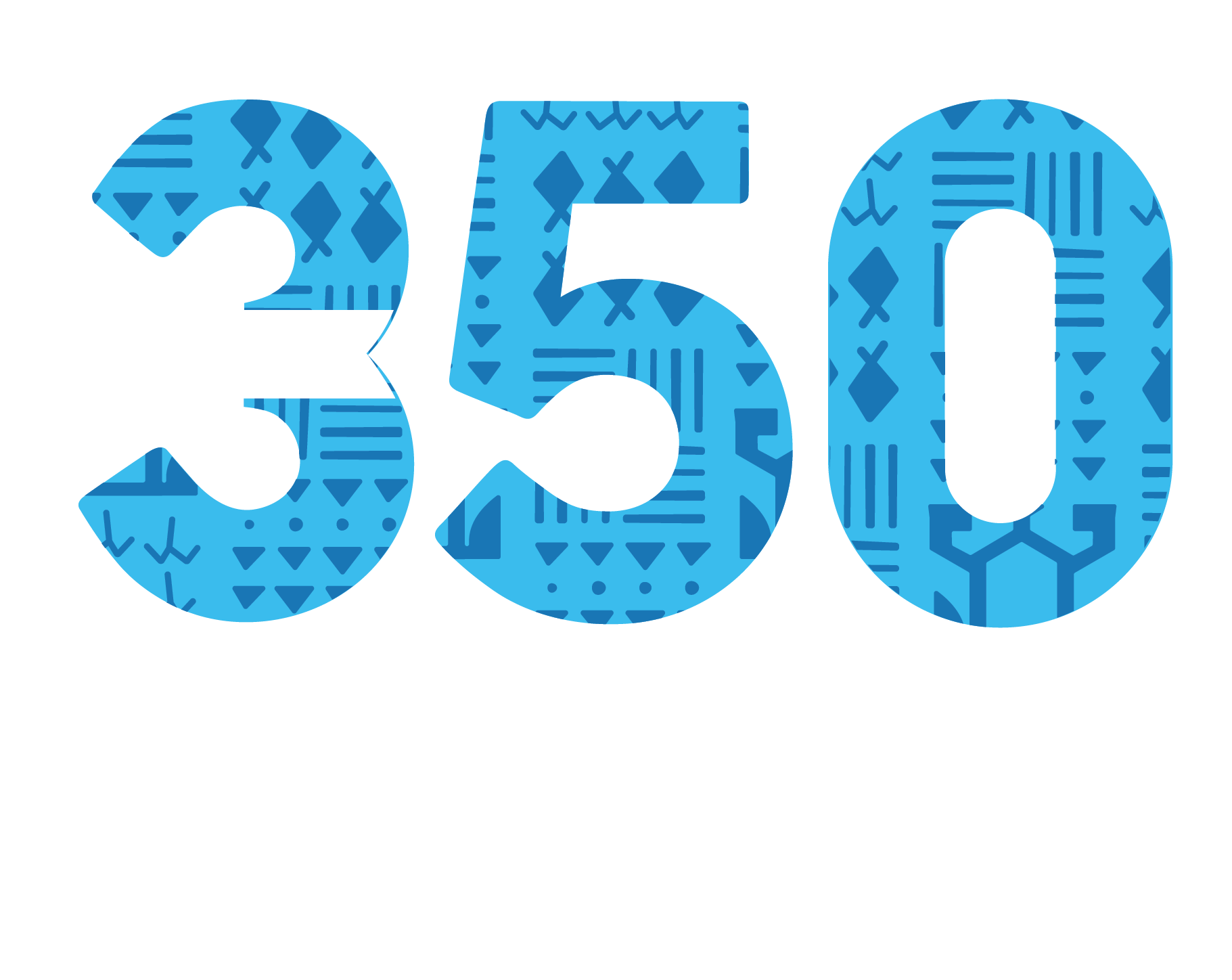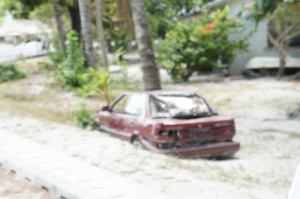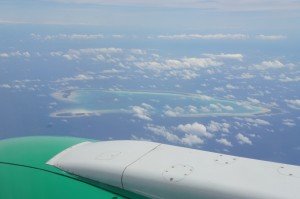I've been here in South Tarawa, Kiribati for the last 3 days, and of all the places I've travelled to (and I've been lucky enough to get to some interesting places), it is the most fascinating. As I stepped off the plane, along with the dozen or so other passengers, we were greeted by locals waiting to see who had arrived and to enjoy the novelty of seeing a plane. I was met by Claire Anterea, one of the local climate change organisers, and a driving force behind Kiribati’s 350 events. We hitched a ride with the local Catholic nuns, who drove us along the only road that spans a good 30km from one end of the very narrow atoll island to the other.
I had been warned before I left that South Tarawa (the most populated part of Kiribati, with about 50,000 people) is over-populated, dirty and smelly. I can confirm that these things are all true. I now know that if you see someone just standing still in the shallow water, it is most likely they are taking a toilet stop. That makes most of the coastline unswimmable. There's just not the infrastructure here to deal with the relatively recent influx of people. There's rubbish all over the place, and some pretty dire squatter settlements. But on the positive side, the people are friendly and chilled out. It feels like a safe place. Yesterday I interviewed Pelenise Alofa, the awesome force behind the Kiribati Climate Action Network (aka KiriCAN) for the Guardian article that we are doing. She highlighted that water is the biggest problem facing Kiribati. There are three sources of water: bore-water, rainwater and water purified at the government plant. But no one wants to drink the bore-water because it is contaminated from people burying their dead all over the island and from human waste (and apparently there's heavy metals in it too). They’re also seeing the gradual salinisation of the bore water with sea-level rise. At the moment it is only affected by the king tides, but in the coming years it's set to get worse. As for the rainwater, few have an iron-clad roof or can afford to buy a rainwater tank. Bare in mind that on average there is one money earner per extended family, earning about Aus $60. As an extreme case, one extended family was recently found to have 70 people – supported by one earner! As for the water purified by the Government – either people can't afford to connect up to the water supply (which only fills up there tank a small amount every couple of days), or they can get water delivered by truck – but that is woefully slow. As Pelenise put it, "I ordered 3000 litres from the Government 2 weeks ago, and I'm still waiting!" As a result, many people are forced to use the bore-water and end up sick, with a high rate of mortality. Then they get buried, and so the water gets even more contaminated. There's many more stories to tell – because like I said, this is such a fascinating place to be. However, I've got a meeting in a few minutes with the other NGO people here – we're planning the Climate leadership workshop for Monday & Tuesday next week with 70 community and young people. I'll be posting on that. And it is important that we focus on leadership. The community here need leadership to organise and clean up this place, and to organise for the almost unthinkable need to relocate due to this potent mix of human mess and climate change impacts. I guess that is why I find this place so fascinating – the reality is that the people of South Tarawa are not that different from any other place. In fact they produce much less rubbish, are less resource intensive and have lower carbon emissions than the average global citizen (per capita they produce only 2% of the per capita emissions in the USA). However, they are isolated and unlike most of the rest of the world, there is no where for their externalities to go (coupled with a lack of infrastructure and services). There is no 'away' for them to throw away to. It's actually the same for any other place. We're rapidly finding out that there is no 'away' on this planet – the costs of our materialistic lifestyles is mounting up and straining our world – it's just less directly visible in other places, or it affects non-human things. What is slightly different though is that not only do the i-Kiribati have to face up to their own externalities, but they now have to deal with the externalities (ie the pollution of greenhouse gasses) caused by the wealthiest countries.So there's plenty of work to be done in changing how we all live on this planet…and for me that is exciting – and urgent. I'll post again soon…but that's all for now.
Cheers Aaron Packard


